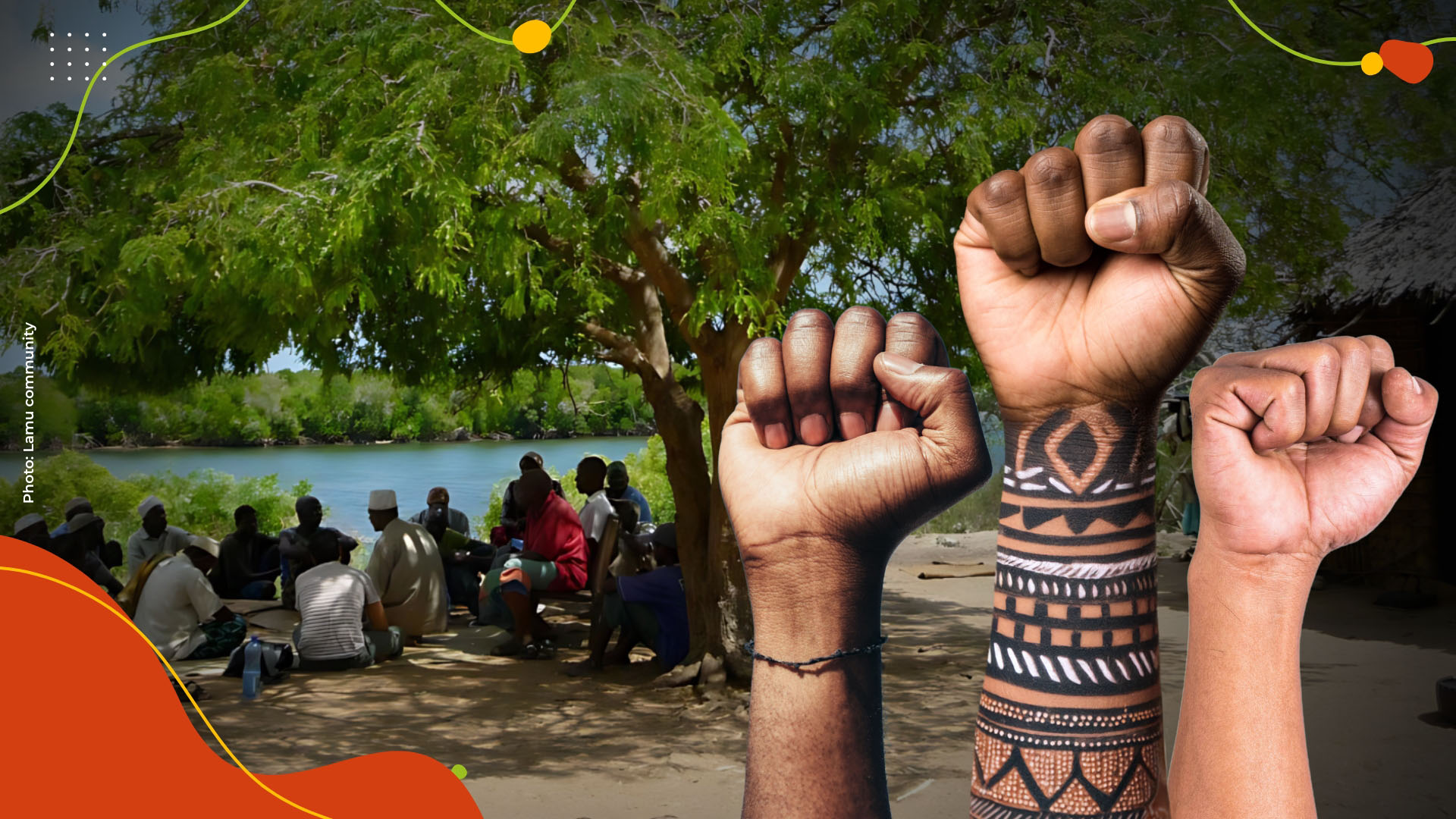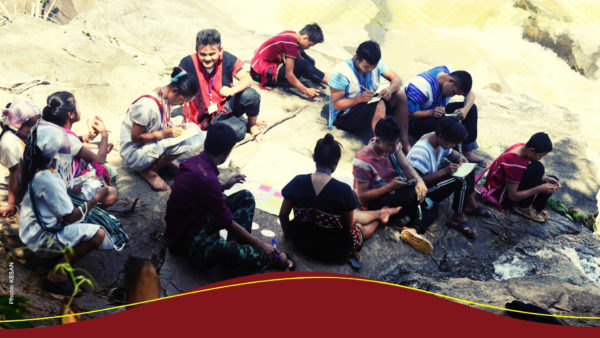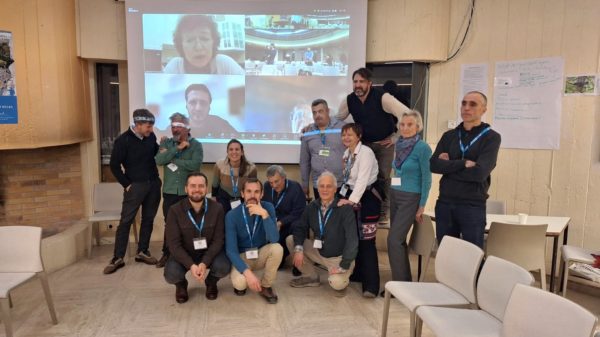We express our collective gratitude and honor for the resilience of Indigenous Peoples everywhere — from those defending their territories under siege to those rebuilding communities in exile
First published on 09/12/2025, and last updated on 12/22/2025
By ICCA Consortium
The ICCA Consortium calls on national governments, international institutions, donors, and all civil society to: meaningfully center Indigenous knowledge in climate and biodiversity decision-making; uphold and fund Indigenous-led conservation governance; and act urgently to safeguard the rights and lives of Indigenous Peoples who are on the frontlines of defending the future of all life on Earth.
For centuries, Indigenous Peoples have been resisting dispossession, assimilation, and systemic erasure. Today, the legacy of colonialism manifests in climate and conservation injustices and in the violent imposition of extractivist and militarized global economic systems that strip Indigenous Peoples of their rights, their voice, and their futures.
We live in an era where the “theory and practice of endless wars” is playing out across regions, taking the lives of countless people, including Indigenous Peoples. Across continents, Indigenous Peoples are subjected to blockades, displaced as refugees, driven into famine, imprisoned, tortured, killed, and forcibly disappeared. This is the continuation of historic patterns of colonialism, now reinforced by the mechanisms of neo-colonialism, still encroaching on the territories of life that sustain Indigenous Peoples and, ultimately, all of humanity.
Such violence and injustices persist despite the existence of the United Nations Declaration on the Rights of Indigenous Peoples (UNDRIP) and other international human rights instruments. UNDRIP has advanced the rights of Indigenous Peoples through an evolving global policy framework under its auspices, created spaces for Indigenous voices to be heard, and inspired new legal and policy arrangements at the national level around the world. These human rights instruments must be fully implemented and monitored.
Amidst these overlapping crises, Indigenous Peoples are defending their territories of life against destruction—they are also offering profound knowledge systems and ways of being that illuminate pathways out of our planetary emergency. Rooted in ancestral wisdom, relational governance, and stewardship honed over millennia, Indigenous Peoples are demonstrating that living in balance with Earth is not a romantic ideal but a practical and necessary response to the sixth mass extinction event we collectively face.
The leadership of Indigenous Peoples is indispensable at this critical juncture, as their wisdom and governance systems show us how to repair our relationship with nature, regenerate ecosystems, and reimagine economies grounded in care and reciprocity rather than endless extraction.
Our call to action
Recognition and protection of territories of life
Territories of life — land, waters, ecosystems, and biodiversity stewarded by Indigenous Peoples — are under relentless attack. States and corporations must recognize and legally protect these territories, respecting Indigenous governance systems and ensuring that these spaces remain safe for present and future generations.
Full Implementation of all Indigenous rights frameworks
We demand the immediate and comprehensive implementation of UNDRIP and all related international, regional, and national human rights instruments. Indigenous Peoples must not continue to bear the burden of delayed promises, symbolic gestures, and hollow declarations.
Ending violence and militarization
States must end the militarization of Indigenous territories, halt targeted violence against Indigenous defenders, and ensure accountability for crimes committed against Indigenous Peoples, including forced disappearances and extrajudicial killings.
Positive peace and Indigenous knowledge
The world must shift from mere “absence of war” to positive peace — a peace rooted in justice, dignity, and balance. Indigenous Peoples hold profound knowledge systems, governance traditions, and lifeways that offer pathways to reconciliation and coexistence. These must inform local, national, and global efforts in peacebuilding.
Restorative justice and reparations
We reaffirm the relevance of the UN General Assembly Resolution 60/147 on the right to remedy and reparation. Indigenous Peoples subjected to historical and contemporary harms — including land theft, forced assimilation, cultural genocide, and environmental destruction — must receive meaningful reparations, both material and symbolic, through processes guided by Indigenous leadership.
Environmental and climate justice
Ecosystem deterioration, biodiversity loss, and climate change are inextricably linked to colonial patterns of exploitation. Global strategies must move beyond token participation and actively integrate Indigenous-led conservation, restoration, and stewardship of ecosystems, including the recognition of Indigenous Peoples as holders of rights and responsibilities, not merely as stakeholders.
Building true partnerships and accountability
All actors—UN agencies, governments, civil society organizations, financial institutions, and private entities — must move beyond consultation to co-decision-making with Indigenous Peoples, grounded in Free, Prior and Informed Consent (FPIC). Mechanisms of accountability must ensure that commitments are translated into measurable actions and systemic change.
Centering Indigenous women and youth
Indigenous women and youth are not only custodians of culture and knowledge but leaders in movements for justice, climate action, and peace. Policies, funding, and programs must prioritize their safety, participation, and leadership, addressing gendered violence and intergenerational inequities.
Direct access to finance
Indigenous Peoples have the right to direct financing mechanisms that avoid layers of bureaucracy and political obstruction — in particular, the stranglehold caused by sanctions and unilateral coercive measures that block urgent funding. Resources intended for Indigenous Peoples must reach them without intermediaries or conditions that compromise their sovereignty, and must be directed toward eliminating all perverse incentives that undermine local governance and tend to facilitate dispossession.
Data sovereignty in the age of Artificial Intelligence
As AI and digital systems increasingly shape governance and resource management, Indigenous data sovereignty is critical. The collection, storage, and use of Indigenous knowledge, cultural heritage, and biogenetic data must remain under Indigenous control, with robust safeguards against misuse and digital colonialism.
With this call, we renew our collective gratitude for the creation and honor the resilience of Indigenous Peoples everywhere — from those defending their territories under siege to those rebuilding communities in exile. The world cannot afford to ignore their voices and wisdom. A future of planetary survival, peace, and justice is rooted in the survival and flourishing of Indigenous Peoples, and their self-determination in territories of life.



